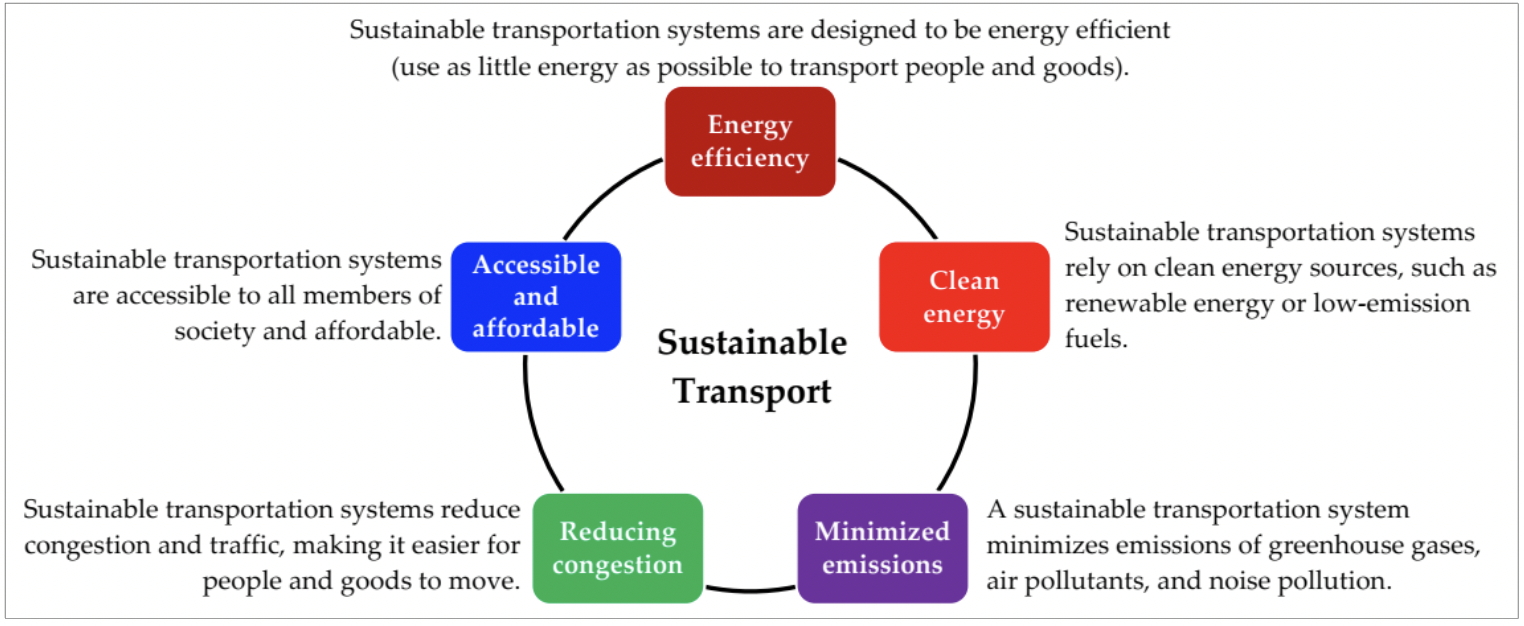Main Article Content
Abstract
Sustainable transport is an important concept to reduce dependence on fossil fuels and to realize a cleaner and more sustainable future. This is achieved through the use of clean energy, low-emission vehicles, efficient use of resources, and transportation planning that considers the needs of the environment and society. Therefore, the use of clean and renewable energy sources, Mass Rapid Transit (MRT), and non-motorized mobility continue to be promoted to support a sustainable transportation system. However, there are several challenges that must be overcome to achieve a truly sustainable transport system, including the costs of switching to clean energy and low-emission vehicles, the lack of infrastructure to support sustainable transport, and the need for greater public awareness and education. about the benefits of sustainable transportation.
Keywords
Article Details

This work is licensed under a Creative Commons Attribution-NonCommercial 4.0 International License.
References
- S. A. Raza, N. Shah, and A. Sharif, “Time frequency relationship between energy consumption, economic growth and environmental degradation in the United States: Evidence from transportation sector,” Energy, vol. 173, pp. 706–720, 2019.
- V. Mavrin, K. Magdin, V. Shepelev, and I. Danilov, “Reduction of environmental impact from road transport using analysis and simulation methods,” Transp. Res. Procedia, vol. 50, pp. 451–457, 2020.
- M. Mohsin, Q. Abbas, J. Zhang, M. Ikram, and N. Iqbal, “Integrated effect of energy consumption, economic development, and population growth on CO2 based environmental degradation: A case of transport sector,” Environ. Sci. Pollut. Res., vol. 26, pp. 32824–32835, 2019.
- M. Hamerska, M. Ziółko, and P. Stawiarski, “A Sustainable Transport System—The MMQUAL Model of Shared Micromobility Service Quality Assessment,” Sustainability, vol. 14, no. 7, p. 4168, 2022.
- H. Gudmundsson, R. P. Hall, G. Marsden, and J. Zietsman, “Sustainable transportation,” Heidelberg, Ger. Frederiksberg, Denmark, Spreinger-Verlag Samf., 2016.
- Y. Cornet and H. Gudmundsson, “Building a metaframework for sustainable transport indicators: Review of selected contributions,” Transp. Res. Rec., vol. 2531, no. 1, pp. 103–112, 2015.
- P. Patil, “Sustainable Transportation Planning: Strategies for Reducing Greenhouse Gas Emissions in Urban Areas,” Empir. Quests Manag. Essences, vol. 1, no. 1, pp. 116–129, 2021.
- M. Goswami et al., “Electric vehicles: a step toward sustainability,” in Emerging Trends in Energy Storage Systems and Industrial Applications, Elsevier, 2023, pp. 619–640.
- M. Setiyo, “Alternative fuels for transportation sector in Indonesia,” Mech. Eng. Soc. Ind., vol. 2, no. 1, pp. 1–6, 2022.
- H. S. Hasibuan and M. Mulyani, “Transit-Oriented Development: Towards Achieving Sustainable Transport and Urban Development in Jakarta Metropolitan, Indonesia,” Sustainability, vol. 14, no. 9, p. 5244, 2022.
- R. Turner-Brady, “Sustainable Transportation for all: An Analysis of Non-Motorized Transport.” University of Washington, 2022.

